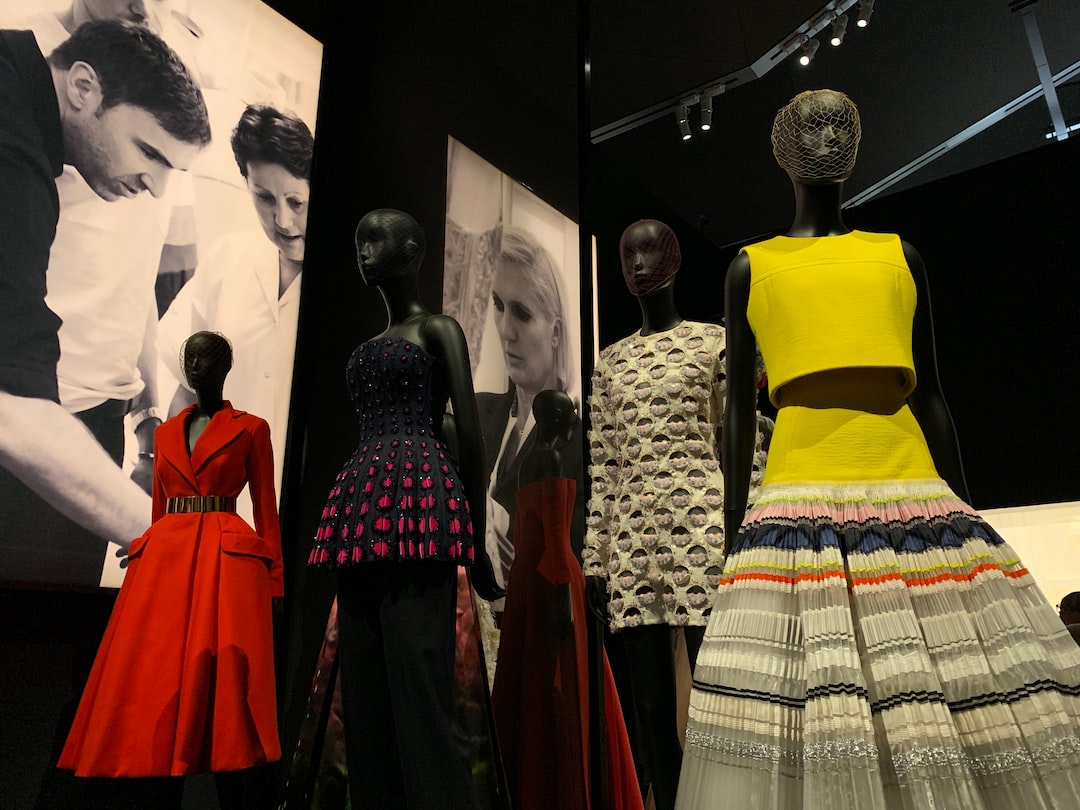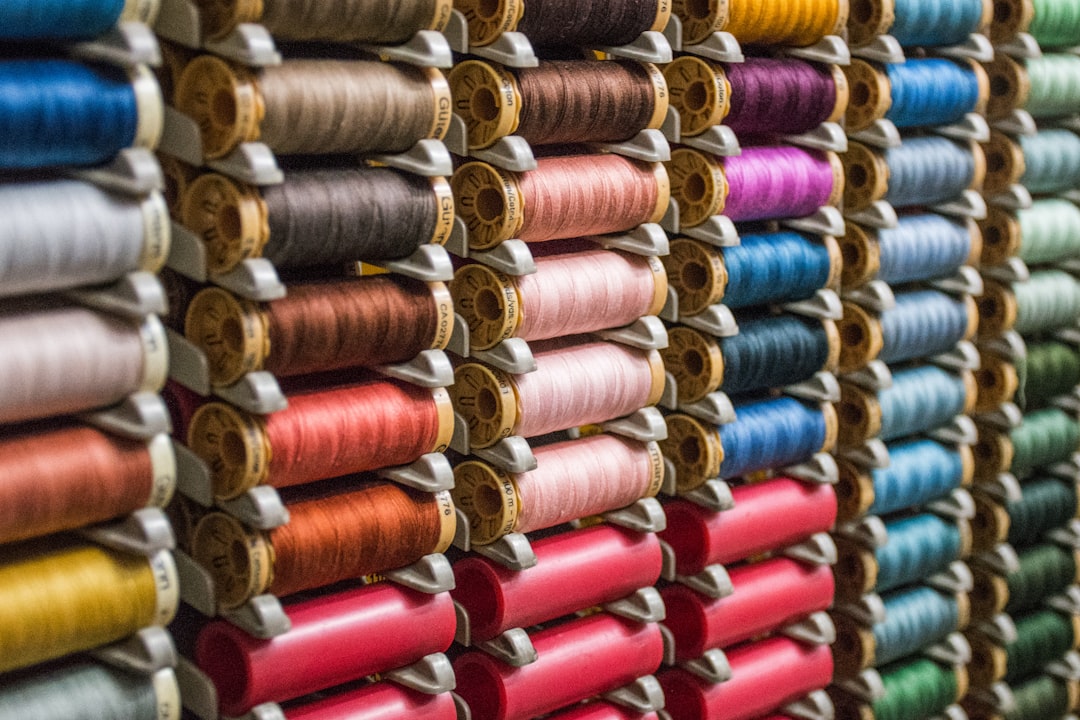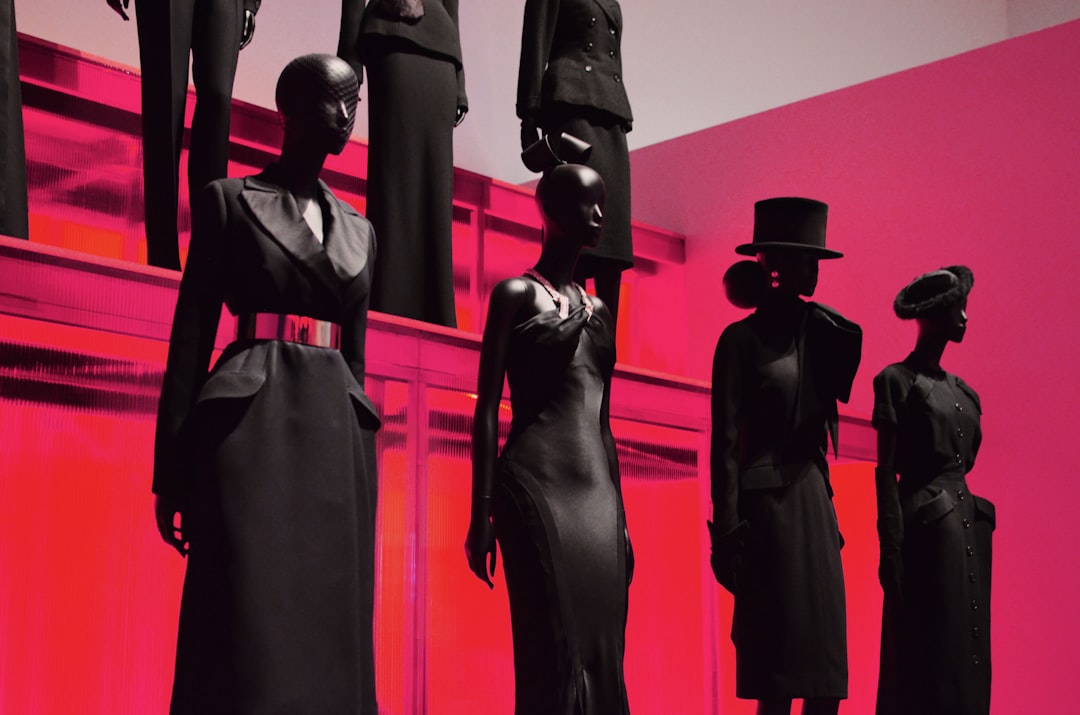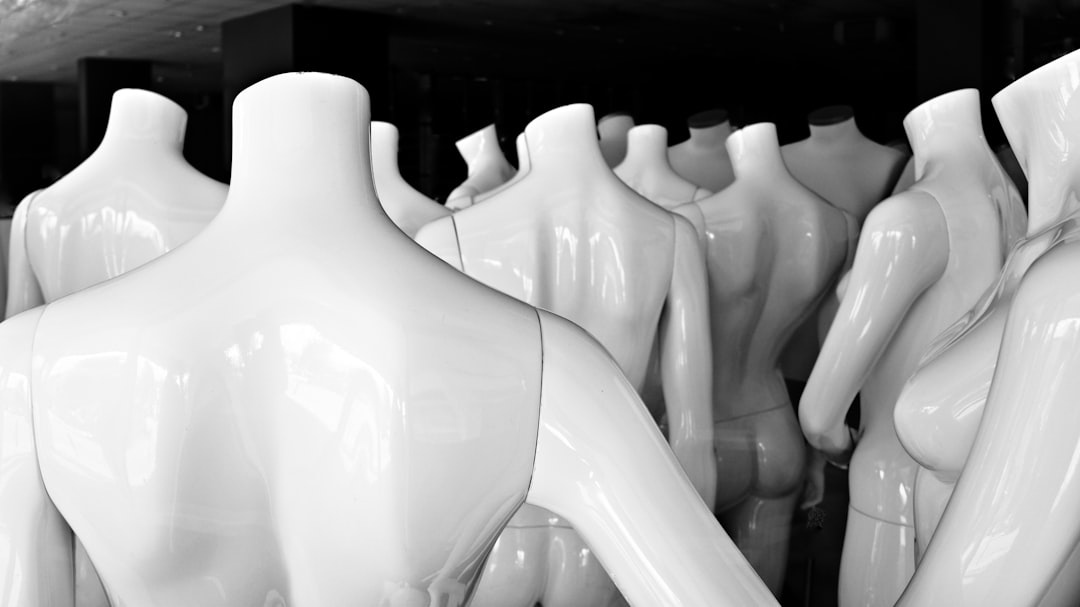Artificial Intelligence (AI) has been a buzzword for quite some time now, and it has made its way into almost every industry. The fashion industry is no exception. With the help of AI, the fashion industry is transforming the way it operates. From design to manufacturing and retail, AI is changing the game.
In this blog post, we will explore the various ways in which AI is revolutionizing the fashion industry. We will delve into the benefits of AI in design, retail, manufacturing, and sustainability. We will also examine the challenges that come with the integration of AI in the industry, including ethical and social implications.
As we explore the topic of AI in fashion, we will take a closer look at how AI is changing the way we think about fashion and what the future holds for this exciting field. So, let’s dive in and explore the world of AI in the fashion industry.
AI in Design: How AI has Revolutionized the Design Process
The fashion industry has undergone a significant transformation in the past few years, thanks to the integration of Artificial Intelligence (AI) in the design process. AI has revolutionized the way fashion designers create and produce their designs, enabling them to create unique and innovative pieces that were previously unimaginable.
One of the most significant advantages of AI in design is its ability to analyze vast amounts of data and generate insights that can be used to inform the design process. AI algorithms can analyze customer preferences, fashion trends, and historical data to generate insights that can help designers create designs that are tailored to their target audience.
AI has also enabled designers to experiment with new materials and fabrics that were previously unavailable, thanks to its ability to simulate different materials and their properties. This has resulted in the creation of unique and innovative designs that push the boundaries of traditional fashion design.
Another advantage of AI in design is its ability to automate many of the repetitive and time-consuming tasks associated with the design process. This has enabled designers to focus on more creative aspects of the design process, such as ideation and experimentation, resulting in more innovative and unique designs.
AI has also enabled designers to create designs that are more sustainable and environmentally friendly. By analyzing data on the environmental impact of different materials and production processes, AI algorithms can help designers make more informed decisions about the materials and processes they use in their designs.
AI has revolutionized the fashion industry by enabling designers to create more innovative, sustainable, and customer-centric designs. As AI technology continues to evolve, we can expect to see even more advancements in the way fashion designers create and produce their designs, resulting in a more dynamic and innovative fashion industry.
AI algorithms can analyze customer preferences, fashion trends, and historical data to generate insights that can help designers create designs that are tailored to their target audience.
AI in Retail: How AI is Transforming the Shopping Experience
The retail industry has undergone a significant transformation in the past decade, thanks to the integration of artificial intelligence (AI) technology. AI has revolutionized the way retailers do business, from providing personalized recommendations to predicting consumer behavior. With the help of AI, retailers can now offer a more immersive and personalized shopping experience to their customers.
One of the most significant advantages of AI in retail is its ability to provide personalized recommendations to customers. By analyzing a customer’s browsing and purchase history, AI algorithms can suggest products that are most likely to appeal to the individual. This not only saves customers time but also helps retailers increase sales by providing targeted recommendations.
Another way AI is transforming the shopping experience is through virtual assistants. Chatbots and digital assistants can help customers find products, answer questions, and even process payments. These virtual assistants are available 24/7, and they can handle multiple customers at once, making them an excellent resource for retailers looking to improve customer service and reduce costs.
AI is also being used to improve the in-store experience. With the help of facial recognition technology, retailers can track customer behavior and preferences, allowing them to make better decisions about store layout and product placement. Additionally, AI-powered sensors can track inventory levels, alerting retailers when products are running low and need to be restocked.
Finally, AI is helping retailers optimize their pricing strategies. By analyzing historical sales data, AI algorithms can predict demand and adjust prices accordingly. This helps retailers avoid overstocking products that may not sell and also prevents them from losing sales due to understocked products.
AI is transforming the way retailers do business, providing personalized recommendations, virtual assistants, and optimized pricing strategies. As AI technology continues to evolve, we can expect even more innovation in the retail industry, ultimately leading to a more immersive and personalized shopping experience for customers.
This not only saves customers time but also helps retailers increase sales by providing targeted recommendations.
AI in Manufacturing: How AI is Changing the Way Clothes are Made
The fashion industry has always been a highly competitive and fast-paced industry. With the advent of AI, the manufacturing process has been revolutionized, making it more efficient, cost-effective, and sustainable. AI has brought about a significant change in the way clothes are made, from the design process to the final product.
One of the most significant advantages of AI in manufacturing is the ability to automate the manufacturing process. With the help of AI, production lines can be optimized to reduce the time and cost of production. This means that manufacturers can produce more clothes in a shorter amount of time, which translates to increased profitability.
AI-powered systems can also help manufacturers to identify and eliminate production inefficiencies. By analyzing data from the manufacturing process, AI can identify areas where the production process can be improved. This can help manufacturers to reduce waste, improve quality, and increase productivity.
Another significant advantage of AI in manufacturing is the ability to create customized products. With the help of AI, manufacturers can create personalized products that meet the specific needs and preferences of their customers. This means that customers can get clothes that fit them perfectly, without the need for extensive tailoring.
AI can also help manufacturers to create sustainable products. By analyzing data from the manufacturing process, AI can identify areas where the production process can be made more sustainable. This can help manufacturers to reduce their environmental impact and create products that are more eco-friendly.
However, there are also challenges associated with the use of AI in manufacturing. One of the biggest challenges is the potential loss of jobs. As more and more processes are automated, there is a risk that many jobs in the manufacturing industry could be lost.
There are also ethical and social implications associated with the use of AI in manufacturing. For example, there are concerns about the use of AI-powered systems to monitor workers and their productivity. There are also concerns about the potential for AI to be used to create products that are discriminatory or biased.
AI has brought about significant changes in the manufacturing process in the fashion industry. With the help of AI, manufacturers can produce more clothes in a shorter amount of time, reduce waste, and create personalized and sustainable products. However, there are also challenges associated with the use of AI, including the potential loss of jobs and ethical and social implications. As the fashion industry continues to evolve, it is essential to consider the impact of AI on the industry and to work towards creating a more sustainable and ethical future.
This can help manufacturers to reduce waste, improve quality, and increase productivity.
AI in Sustainability: How AI is helping to reduce waste in the fashion industry
The fashion industry is notorious for its severe environmental impact. The industry is responsible for a significant amount of greenhouse gas emissions, water pollution, and waste. However, AI is offering a glimmer of hope for the future of sustainability in fashion. AI technology is helping to reduce waste in the fashion industry by enabling designers and manufacturers to make more informed decisions about the materials they use, the production process, and the end-of-life of garments.
One of the most significant ways that AI is helping to reduce waste in the fashion industry is by improving the efficiency of the supply chain. AI algorithms can analyze data from various sources, including sales data, weather patterns, and social media trends, to predict demand for specific garments. This technology can help designers and manufacturers to produce the right amount of garments, reducing overproduction and minimizing waste.
AI is also helping to reduce waste in the production process by enabling designers to create more sustainable designs. AI algorithms can identify the most sustainable materials for a particular garment, taking into account factors such as the environmental impact of the production process, the durability of the fabric, and the recyclability of the material. This technology can help designers to make more informed decisions about the materials they use, resulting in less waste and a more sustainable fashion industry.
Furthermore, AI is helping to reduce waste at the end-of-life of garments. AI algorithms can analyze data on consumer behavior, such as the frequency of clothing disposal and the methods used to dispose of garments, to identify opportunities for improvement. This technology can help designers and manufacturers to create garments that are easier to recycle or repurpose, resulting in less waste and a more sustainable fashion industry.
AI is offering a promising solution to the sustainability challenges facing the fashion industry. By improving the efficiency of the supply chain, enabling designers to create more sustainable designs, and reducing waste at the end-of-life of garments, AI is helping to transform the fashion industry into a more sustainable and environmentally friendly industry. However, as with any new technology, there are ethical and social implications that must be considered. In the next section, we will explore the challenges of AI in the fashion industry.
However, as with any new technology, there are ethical and social implications that must be considered.
Challenges of AI in Fashion: The Ethical and Social Implications of AI in the Industry
As with any emerging technology, AI in fashion comes with its own set of challenges that need to be addressed. One of the biggest challenges is the ethical and social implications of AI in the industry.
One of the main concerns is the potential for AI to perpetuate biases and inequalities in the fashion industry. For example, if AI algorithms are trained on data that is biased towards certain demographics or body types, the resulting designs and recommendations may not be inclusive of all people. This could lead to further marginalization of certain groups in the industry.
Another concern is the potential for AI to replace human workers in certain areas of the industry. While AI can certainly improve efficiency and productivity, it could also lead to job losses and a further widening of the wealth gap.
Additionally, there is the issue of data privacy and security. As AI systems become more integrated into the fashion industry, there will be a vast amount of data being collected and analyzed. It is important to ensure that this data is being used ethically and that individuals’ personal information is being protected.
Lastly, there is the question of accountability. As AI systems become more complex and autonomous, it may become difficult to pinpoint responsibility for any negative outcomes or errors. It is important to establish clear guidelines and regulations for the use of AI in the industry.
Overall, while AI has the potential to greatly benefit the fashion industry, it is important to approach its implementation with caution and consideration for the ethical and social implications. By addressing these challenges, we can work towards a future where AI and human workers can coexist and collaborate to create a more sustainable and inclusive fashion industry.
Overall, while AI has the potential to greatly benefit the fashion industry, it is important to approach its implementation with caution and consideration for the ethical and social implications.
Conclusion: The Future of AI in the Fashion Industry
As we have seen in the previous sections, AI is transforming the fashion industry in multiple ways. From design to retail, manufacturing to sustainability, AI is making a significant impact on the industry’s operations and processes. However, with all the benefits come some challenges and ethical implications that need to be addressed.
AI has the potential to improve the efficiency and accuracy of the fashion industry, but it also raises concerns about job displacement and privacy. The use of AI in fashion also raises ethical concerns about bias and discrimination, as AI algorithms can perpetuate existing biases if not programmed correctly. Therefore, it is crucial to develop and implement ethical guidelines and regulations to ensure that AI is used responsibly in the fashion industry.
Despite the challenges, the future of AI in the fashion industry is promising. The continued development of AI technology will enable fashion companies to create more personalized and sustainable products, streamline their operations, and enhance the customer experience. AI can also help fashion companies to predict and respond to changing trends and consumer preferences in real-time, leading to more efficient and effective decision-making.
In conclusion, AI is revolutionizing the fashion industry in ways that we couldn’t have imagined just a few years ago. The potential benefits are significant, but we must also address the challenges and ethical implications of AI to ensure that it is used responsibly and for the greater good of the industry and society as a whole. With the right approach, AI can help shape the future of fashion for the better.





